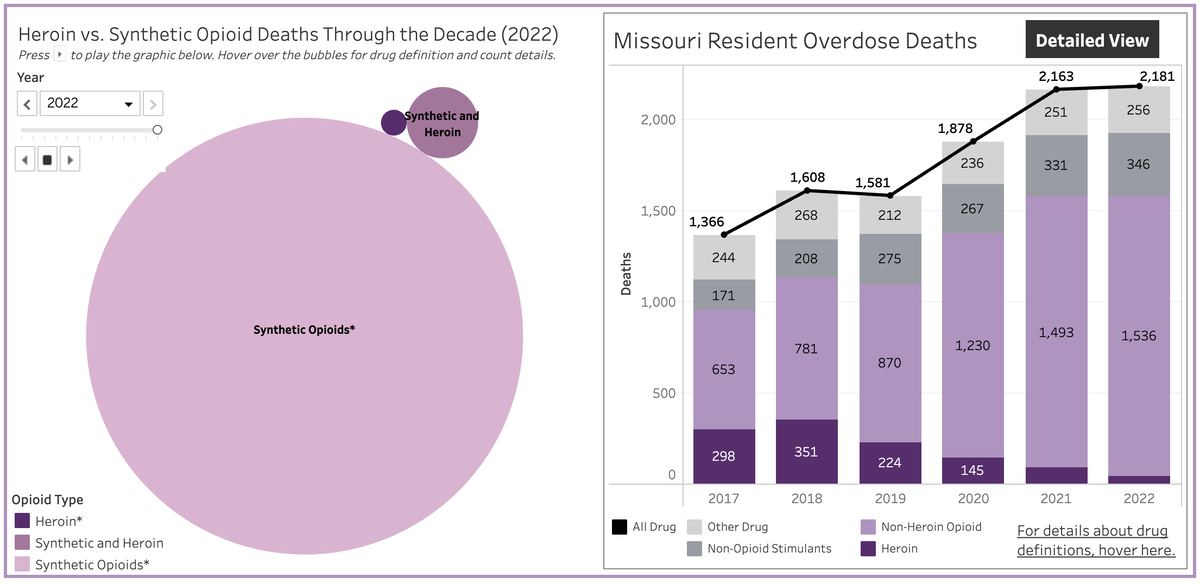Governor signs laws expanding first responder access to anti-opioid drugs, increasing law enforcement training hours
JEFFERSON CITY, Mo. (KMIZ)
First responders will now have fewer barriers to giving life-saving medications to people suffering from a drug overdose.
Gov. Mike Parson held a ceremonial signing in his Missouri Capitol office Wednesday for several bills related to public safety.
The bills have all already been signed into law and most went into effect by Aug. 28. The laws being publicly signed Wednesday include ones on public records for crash reports, criminal proceedings and a public safety omnibus bill.
The signing was attended by public safety officials, including troopers, firefighters and police officers who crowded into the governor's office.
Senate Bill 186 is an omnibus public safety law. Its provisions include one that gives first responders more access to anti-opioid drugs and another that changes the requirements for law enforcement officer training.
Drug overdose deaths in Missouri are on a steady increase. According to the Missouri Department of Health and Senior Services, more than 2,100 drug overdose deaths were recorded last year. Synthetic opioids account for more deaths in Missouri than every other kind of drug combined, according to DHSS.

Thanks to a new law, first responders can now have and administer any FDA-approved anti-opioid medication.
"What happens a lot of times in state government, I would say, is we're on the back end of that and we're trying to deal with it after it's happened," Parson said. "It's more important that we try to figure out to make sure how it doesn't happen to get into that. And again, I think that's where law enforcement comes in."
Local first responders said they believe this will help them reduce opioid overdose deaths.
"By having more of that available to our responders, we increase the potential that we're going to have a positive interaction or intervention with someone who is experiencing an overdose or suspected overdose, by reversing the effects of that drug much more rapidly," said Columbia Fire Chief Clayton Farr Jr.
Farr said Columbia is also working on programs to make things like Narcan readily available.
"We want to work closely with the health department and with our community members to ensure that if you see someone that you suspect that may have an overdose or may need emergency care, call 911," Farr said.
Also under this new law, the minimum number of hours it could take to become a law enforcement officer in Missouri is 600. That used to be the maximum hours the state could require.
Every law enforcement agency in Missouri was already doing at least 600 hours of training, according to the Missouri Department of Public Safety. Some law enforcement agencies actually already train more than 600 hours; the Missouri State Highway Patrol requires 1,200 hours of training before someone can become a trooper.
Because of that, Missouri POST, or Peace Officer Standards and Training, could not require any more training.
However, this new law allows them to expand the required training materials.
"Well, with the changing society, we have to provide the best training possible for our police officers. The more sometimes is better in this circumstance," said Chief Michael Wiegand with POST.
The law also creates more discipline for police officers.
"Law enforcement is like any other industry, like any other profession," Parson said. "You know, we need to take care of bad actors."
